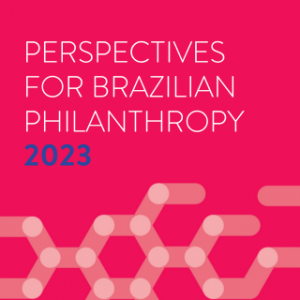By Paula Fabiani, Luisa Lima, and Marina Negrão, from IDIS – Institute for the Development of Social Investment
The 18th Global Risks Report from the World Economic Forum advocates that “Concurrent shocks, deeply interconnected risks and eroding resilience are giving rise to the risk of polycrises – where disparate crises interact such that the overall impact far exceeds the sum of each part”. The climate crisis is connected to the worsening of hunger and the increase in refugees. The war in Ukraine amplifies the debate on the use of fossil energy, and the health crisis triggered by the Covid-19 pandemic has led countries to rethink structures for income distribution, housing, access to basic sanitation, and international cooperation. The problems interact with each other, and they are interlaced. It is a multiple crisis, whose parts feed back into each other and progress at a speed and scale never before experienced.
This scenario was the starting point for the new edition of the ‘Perspectives for Brazilian Philanthropy’, an annual publication by IDIS – Institute for the Development of Social Investment that outlines the movements that are important for the present, which stand out, and for which philanthropists, social investors, and all those working in this field should be attentive for.
Not surprisingly, the first perspective out of eight, reveals how philanthropy begins to respond in an integrated manner, contributing to structural changes. The Brazil Climate, Forests, and Agriculture Coalition, for example, is a movement with over 350 representatives from the private sector, financial sector, academia, and civil society, aiming to articulate multiple causes and promote initiatives to promote the harmonious, inclusive, and sustainable use of land in the country and thus enable the transition to the new economy.
Six years away from the deadline of the 2030 Agenda proposed by the UN, public commitments are growing. Governments are signing treaties and letters of intent. Companies are disclosing goals, adopting new business models, and redirecting their philanthropic practices to generate positive transformations. Wealth holders declare that part of what they possess will be allocated to the promotion of social justice. In this scenario, a risk emerges: the ‘washings’, a term which has been adopted to denote false speeches not anchored in facts. In other words, commitments may be nothing more than empty promises that do not materialize over time.
The country’s moment, seeking to regain prominence on the environmental agenda, is also highlighted. Even organizations that work on specific issues such as education or culture find themselves encouraged to look at their relationship with the environment and climate change. There is also a growing trend of regional philanthropic initiatives, more attentive to the demands of the territories where they operate, with an approach more sensitive to local particularities.
The report draws attention to the fact that philanthropy also benefits the infrastructure of the Third Sector by investing in actions that promote the improvement of the regulatory environment, supporting the generation of data and actions for collective impact, such as the Coalition for Philanthropic Funds, which played an important role in the achievement of the first legislation on Endowment Funds in Brazil. Other aspects addressed include the adoption of impact assessment processes by companies and their contribution to the ESG Agenda, the importance of diversity in boards, and the use of Artificial Intelligence by social organizations.
The newly launched publication provides a clearer picture of the social investment horizon and is an invitation to reflection and action. A contribution from IDIS professionals to a resilient and sustainable future – in all its dimensions.



